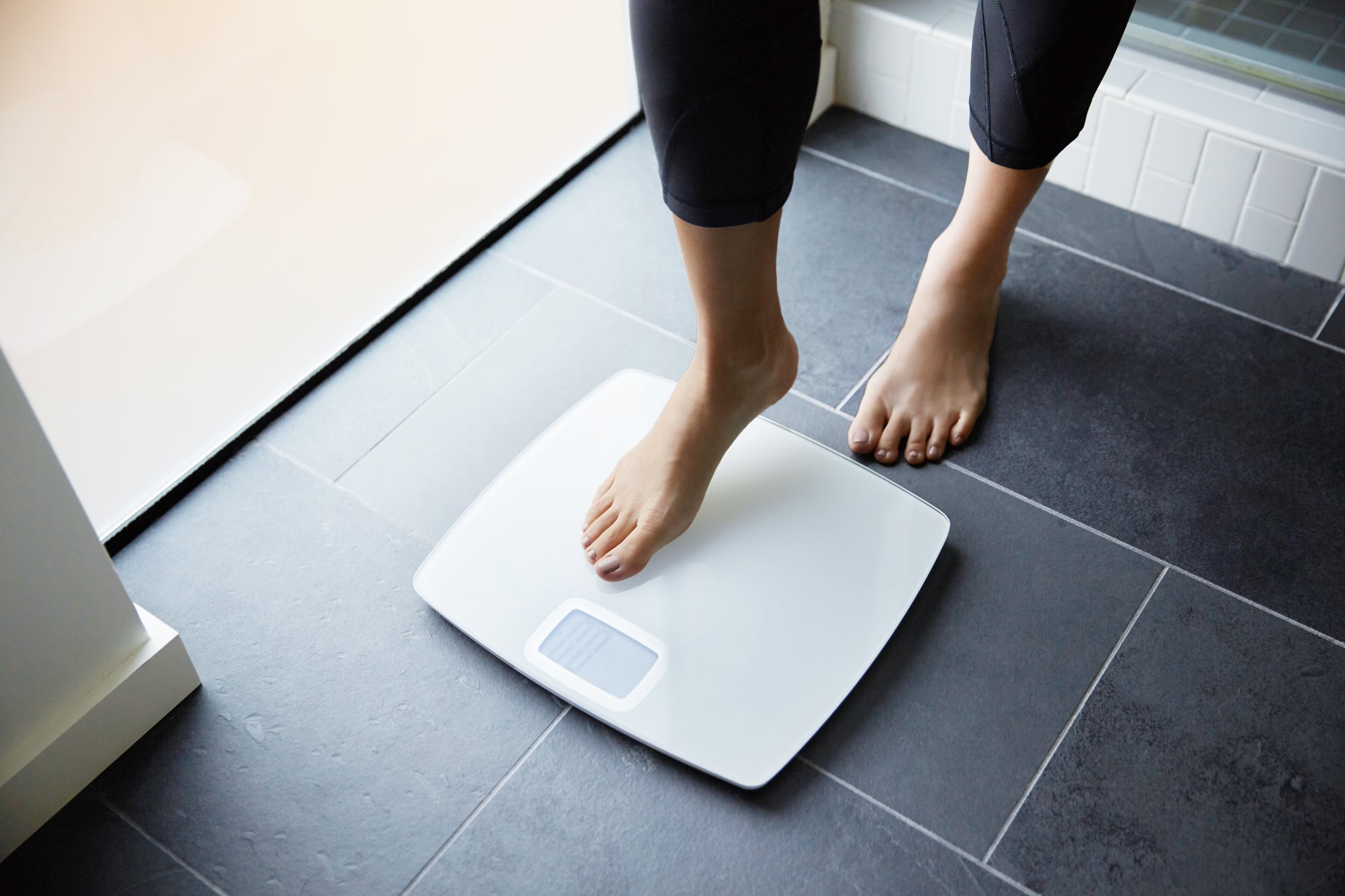How to Figure Out Your Goal Weight
Trying to Lose Weight? Here's How You Should Find Your Goal Weight

When most people set out to lose weight, they may have a magic number in mind: maybe it was the number they weighed in college, or a number that fits into a "normal" BMI range.
Turns out, there's actually a formula to figure out what your goal weight should be. Of course, it all depends on your height, current weight, activity level, body type, muscle mass, and other factors — to find a healthy goal weight for you, you should speak with your doctor or healthcare provider.
But to get a good estimate, Jim White, RD, NASM, and owner of Jim White Fitness and Nutrition Studios, recommends a simple maths equation: for men, it's 106 pounds plus six pounds for every inch over five feet. So if a man is five-feet, eight-inches tall, his goal weight would be 154 pounds. For women, it's 100 pounds plus five pounds for every inch over five feet. So if a woman is five-feet, four-inches tall, her goal weight should be 125 pounds.
This calculation doesn't account for muscle mass, however. If you're looking to calculate body fat percentage, Jim points to the American Council on Exercise chart for body fat, which says women who have body fat between 25 and 31 percent are normal, while for men it's 18 to 24 percent. He said body fat percentages are determined with tools such as the bod pod, hydrostatic weighing, and calipers. He also mentioned the Metropolitan Life Insurance Chart, which takes body frame into consideration when calculating an ideal weight and height range.
If you have a lot of weight to lose, however, that weight may seem too low and nearly impossible to achieve. For obese patients, Eduardo Grunvald, MD, program director at UC San Diego's Weight Management Program, recommends patients start out by losing five to 10 percent of their starting weight. So if they weigh 200 pounds, they should first aim to lose 10 to 20 pounds. Although losing more might be beneficial for overall health, it's a hard feat, especially if the patient has been overweight or obese for a long period of time.
"It's not to say that people can't lose more [weight], or that if they lose more they won't get more benefit, because there's a lot of people who do lose more," Dr. Grunvald said. "I'm just talking about averages. But that's important because if you lose 20 pounds, and a lot of the health issues get better, that should be your goal." He said if you make your goal too drastic, such as getting your BMI to 25 (the upper range of "normal" BMI), it may be extremely unlikely to get there and you may give up entirely.
In general, your actual goal weight should be determined by you and your doctor or dietitian. But if you're looking for a pound range to shoot for, Jim's equation may be a good place to start.




